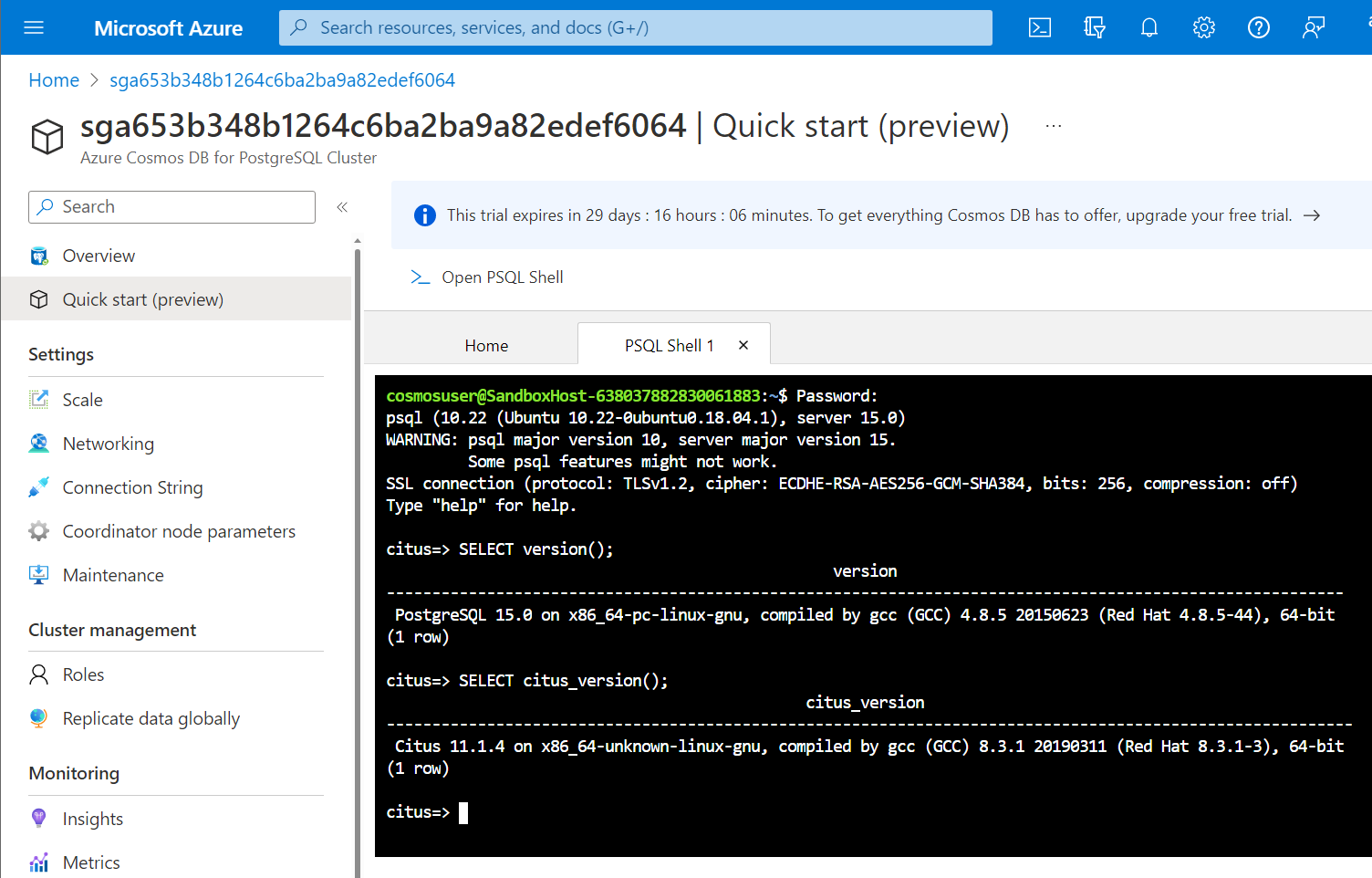

- Cosmos db postgres upgrade#
- Cosmos db postgres full#
- Cosmos db postgres trial#
- Cosmos db postgres download#
- Cosmos db postgres free#
After connecting to your PostgreSQL database, you just need to run the following commands: SELECT create_extension('azure_storage') Starting now, you can directly interface with Azure Blob Storage through a brand-new PostgreSQL extension, pg_azure_storage. This introduced unnecessary friction when you were building your application.
Cosmos db postgres download#
Prior to today, if you had data in Azure Blob Storage, you’d need to download that data to another VM and then upload it to your database. Azure cloud integrationsĪnother key feature of a cloud-native database is how well it integrates with the rest of the cloud. We also provide cloud integrations so that you have an easier time building on Azure. With these features, you get managed database capabilities native to the cloud.

Cosmos db postgres upgrade#
One-click upgrade to latest PostgreSQL & extension versions.Automatic backup/restore & ability to rewind to a particular point-in-time.High Availability across Availability Zones (AZ).
Cosmos db postgres free#
Upgrading from the free trial, or creating a new database for PostgreSQL, gives you many new capabilities. When this happens, you can click the Upgrade button to enable a broad range of new features.
Cosmos db postgres trial#
Of course, Free Trial is enough to get started but you’ll need more as your application gets more serious. Use Quick start in Azure portal to set up Azure Cosmos DB for PostgreSQL This way, you can benefit from the latest features in PostgreSQL without delays. Furthermore, as PostgreSQL releases new versions, we make those versions available to you within two weeks.
Cosmos db postgres full#
With this feature, you get all the native capabilities that comes with PostgreSQL, including rich JSON support, powerful indexing, extensive datatypes, full text search, and much more. The Azure Cosmos DB free trial is the easiest way to get started in building your cloud-native app. If you’re just starting with Azure Cosmos DB, let’s see how you can benefit from these three properties with a few examples. If you need to go global, enable cross-region replication for lower latency & global availability. This way, we’ll take care of relational features at scale – distributed transactions, deadlocks, foreign keys, and more – for you. As your workload grows, scale it out by enabling distributed tables, powered by the Citus open source extension to PostgreSQL.


 0 kommentar(er)
0 kommentar(er)
